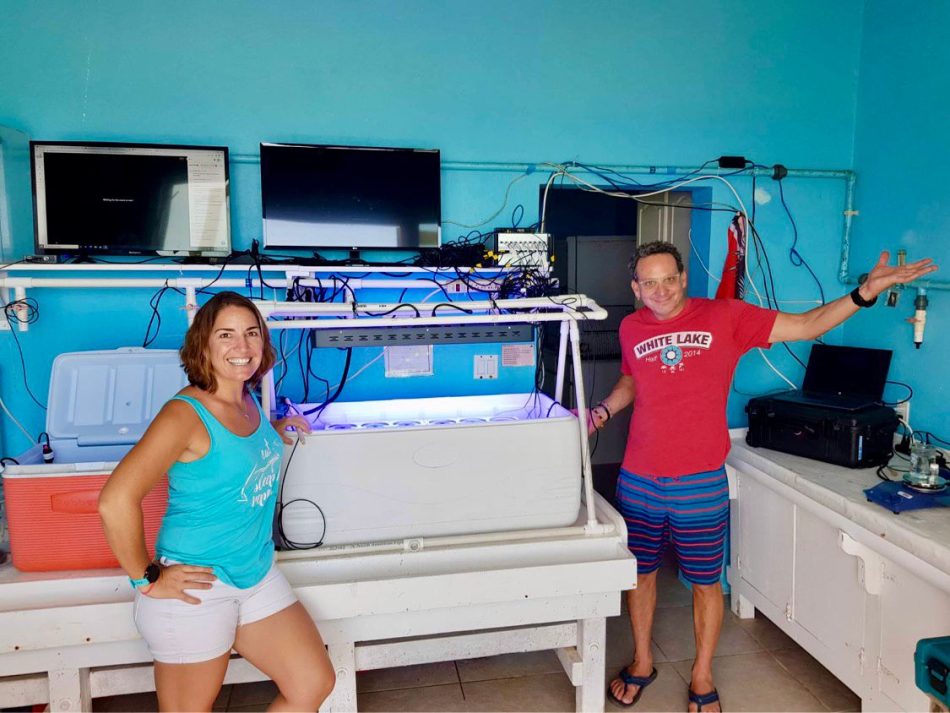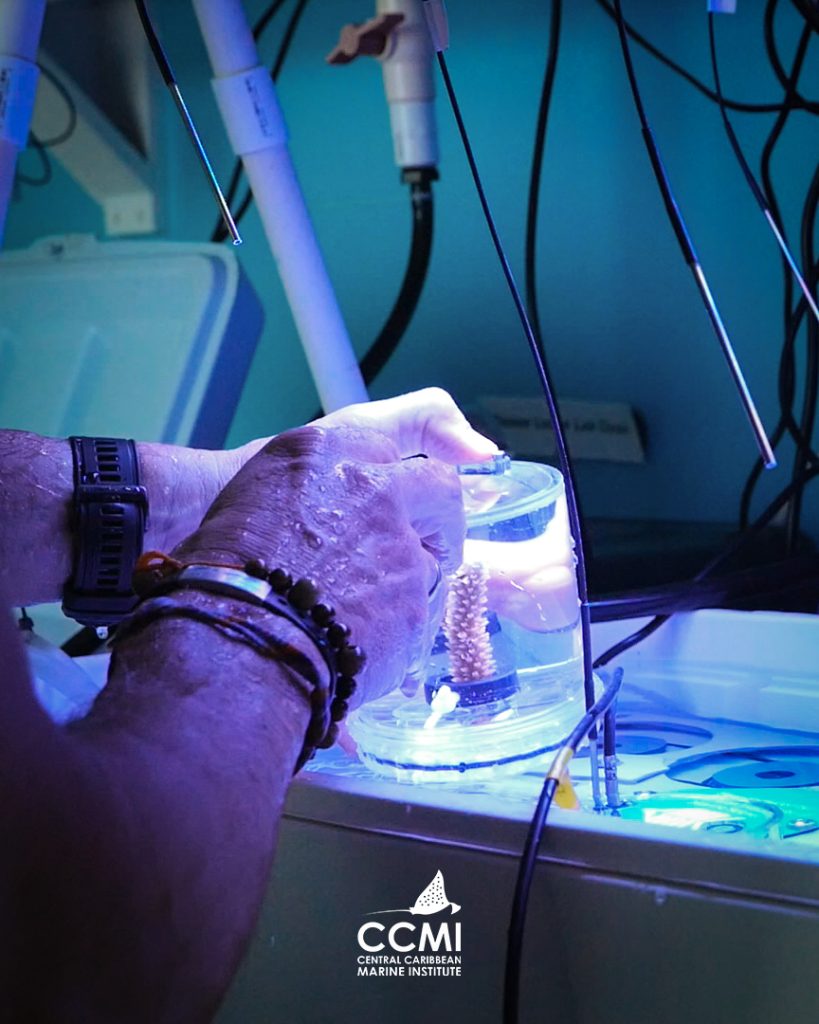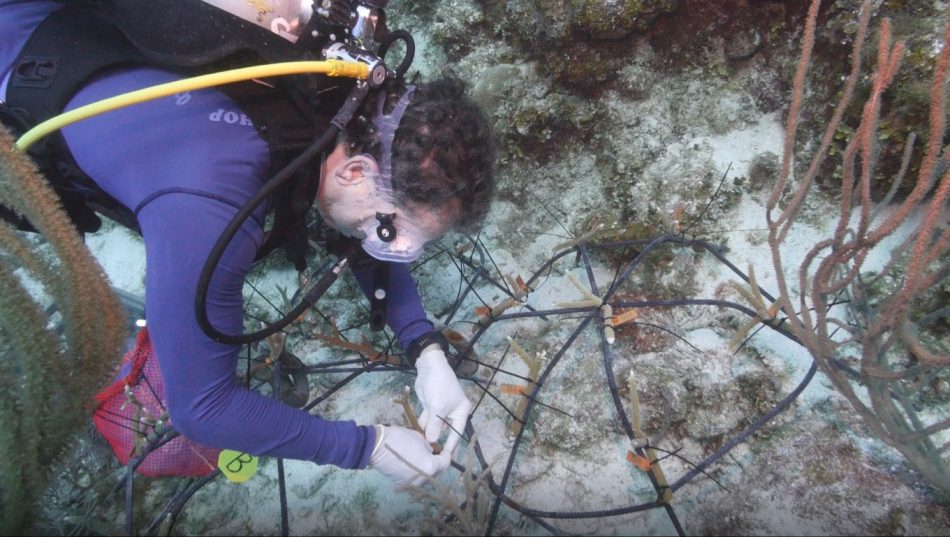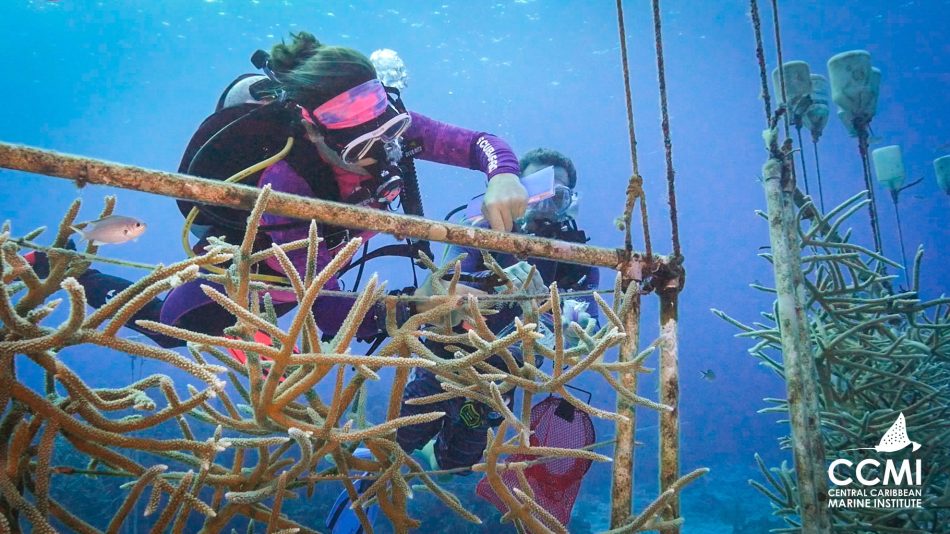RESEMBID coral restoration
CCMI RESEMBID PROJECT REVEALS THE CRUCIAL ROLE OF DIVERSITY IN CORAL RESTORATION AND CLIMATE CHANGE RESILIENCE

Little Cayman, Cayman Islands; 16TH January 2024 – The Central Caribbean Marine Institute (CCMI) and project partner, Dr John Bruno, University of North Carolina, have completed a two-year coral restoration research project investigating how Acropora corals with different genetic makeup (genotypes) respond to climate change-related stress.
The project, which is supported by RESEMBID, funded by the European Union and implemented by Expertise France, examined key desirable traits of different coral genotypes that could translate to increased resilience at a restoration site or coral nursery. These traits included resistance to coral disease, faster growth rates and tolerance of warmer waters.

CCMI’s project initially aimed to examine and test thermal tolerance within a laboratory setting, through controlled experiments. However, the extended period of warmer waters in the Cayman Islands over summer 2023 provided a unique opportunity to monitor responses in the lab and on the reefs of Little Cayman.
Although devastating to watch corals bleach and die, the bleaching event gave CCMI’s researchers invaluable insight into how different genotypes respond to conditions that will become more common in the future due to climate change, in both natural and lab-based environments.

Both the lab-based and field studies found that no one coral genotype clearly displayed all desirable characteristics that would be linked to resilience. Instead, some genotypes showed higher resistance to coral disease, but lower thermal tolerance, whereas others displayed higher thermal tolerance and less bleaching, but slower growth rates or lower disease resistance.
In the field, all corals in the nursery bleached or died during the coral bleaching event, except one specific genotype with remaining healthy colonies which was also shown through lab results to have a higher thermal tolerance. However, this specific genotype also showed much slower growth rates than other corals.
CCMI’s Director of Research, Dr Gretchen Goodbody-Gringley explains what these results mean for coral restoration under a changing climate:
“These results emphasize the importance of maintaining genetic diversity in our standing stock of corals used for restoration to bet hedge for increased resilience against the myriad of threats that could impact survival now and in the future.”

CCMI’s results show that preserving the diversity of genetics within coral restoration projects is crucial to boost coral resilience to stress. Coral reefs are complex ecosystems that are exposed to a wide range of threats from climate change and human activity, and restoration should reflect this complexity. Boosting genetic diversity and building this into coral restoration practices is likely to be the best and only way to increase the resilience of coral reef restoration efforts in the Anthropocene.
Coral reefs are an essential ecosystem that underpin societal well-being through services such as food provision, storm protection, and economic activities. As the impacts of climate change become more severe and events like this year’s coral bleaching become more common, coral restoration is an essential tool to buy time, improve coral populations and provide hope for vulnerable coral reefs, while the world battles to reduce emissions and slow climate change.
Coral restoration may be part of the solution, but it is also highly vulnerable to the impacts of climate change. As such, future restoration efforts must be climate-smart, and designed around resilience-based concepts to ensure that these benefits are realised.
Through this project, CCMI has continued our commitment to science-based, innovative coral restoration, producing recommendations and a coral restoration handbook to support managers and practitioners locally and internationally with incorporating resilience principles into their restoration efforts.
CCMI has also released a video, available here: http://tinyurl.com/RESEMBID-project-outcomes, a coral restoration handbook (https://reefresearch.org/wp-content/uploads/2024/01/RESEMBID-HANDBOOK-2024-ENGLISH.pdf) and will be holding a press conference on 18th January at 10am EST to discuss these results and how they can be applied to climate-smart coral restoration for the future of coral reefs in a changing climate.
Register for CCMI’s coral restoration press conference here: https://fb.me/e/6er9UvEYv





